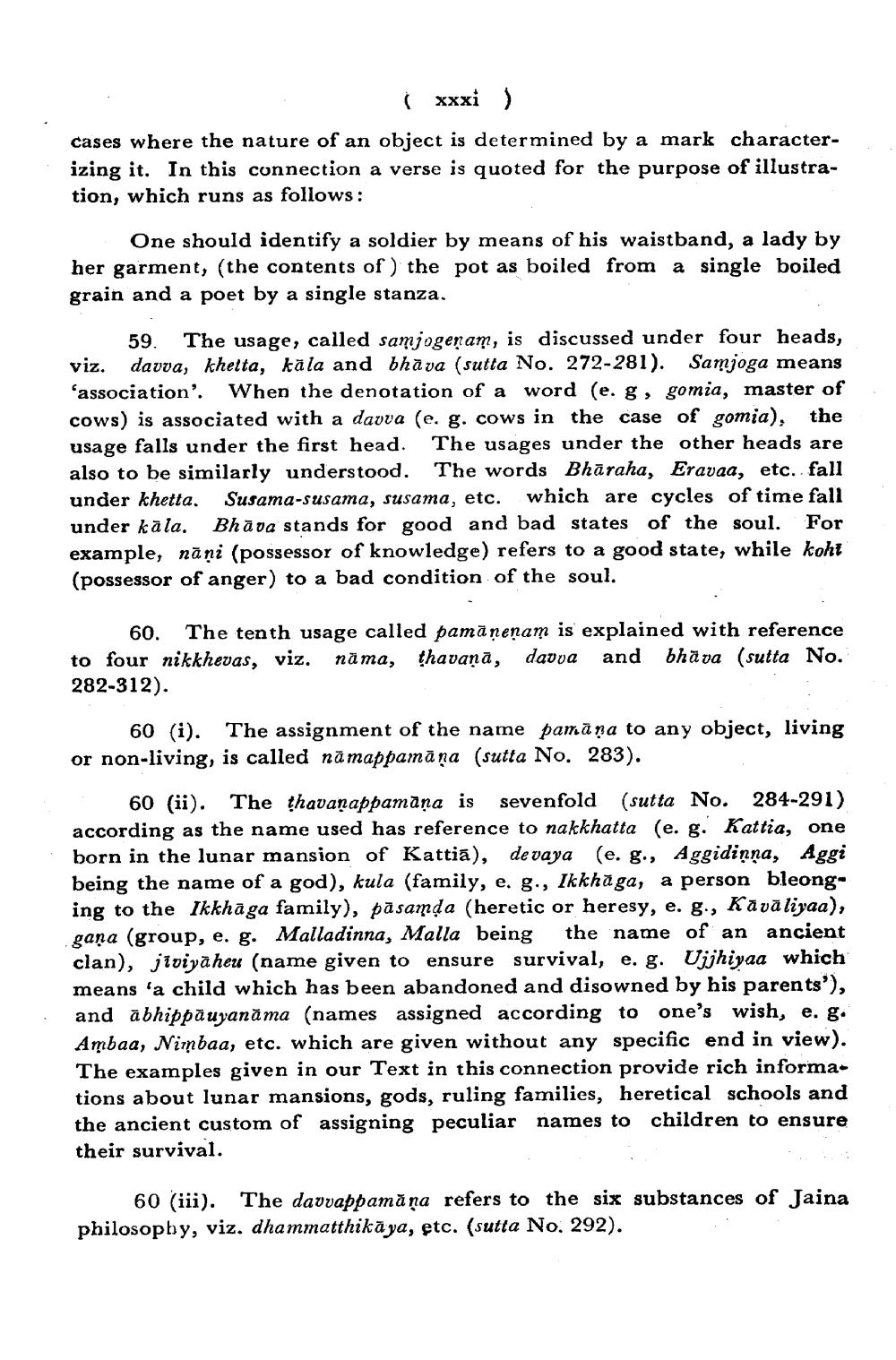________________
( xxxi
cases where the nature of an object is determined by a mark characterizing it. In this connection a verse is quoted for the purpose of illustration, which runs as follows:
One should identify a soldier by means of his waistband, a lady by her garment, (the contents of the pot as boiled from a single boiled grain and a poet by a single stanza.
59. The usage, called samjogeņam, is discussed under four heads, viz. davva, khetta, käla and bhāva (sutta No. 272-281). Samjoga means 'association'. When the denotation of a word (e. g, gomia, master of cows) is associated with a davva (e. g. cows in the case of gomia), the usage falls under the first head. The usages under the other heads are also to be similarly understood. The words Bhāraha, Eravaa, etc. fall under khetta. Susama-susama, susama, etc. which are cycles of time fall under kāla. Bhāva stands for good and bad states of the soul. For example, nāņi (possessor of knowledge) refers to a good state, while koht (possessor of anger) to a bad condition of the soul.
60. The tenth usage called pamanenam is explained with reference to four nikkhevas, viz. näma, havana, davva and bhäva (sutta No. 282-312).
60 (i). The assignment of the name pamāna to any object, living or non-living, is called nā mappamāņa (sutta No. 283).
60 (ii). The thavanappamāṇa is sevenfold (sutta No. 284-291) according as the name used has reference to nakkhatta (e. g. Kattia, one born in the lunar mansion of Kattia), devaya (e. g., Aggidinna, Aggi being the name of a god), kula (family, e. g., Ikkhaga, a person bleonging to the Ikkhāga family), pasamda (heretic or heresy, e. g., Kavā liyaa), gana (group, e. g. Malladinna, Malla being the name of an ancient clan), jiviyaheu (name given to ensure survival, e. g. Ujjhiyaa which means 'a child which has been abandoned and disowned by his parents'), and ābhippauyanāma (names assigned according to one's wish, e. g. Ambaa, Nimbaa, etc. which are given without any specific end in view). The examples given in our Text in this connection provide rich informations about lunar mansions, gods, ruling families, heretical schools and the ancient custom of assigning peculiar names to children to ensure their survival.
60 (iii). The davvappamāṇa refers to the six substances of Jaina philosophy, viz. dhammatthikāya, etc. (sutta No. 292).




